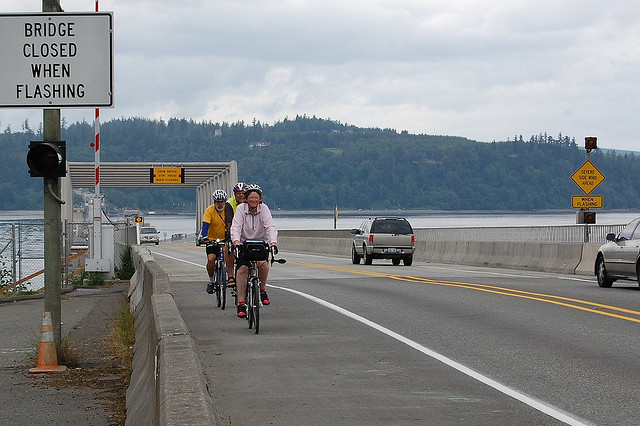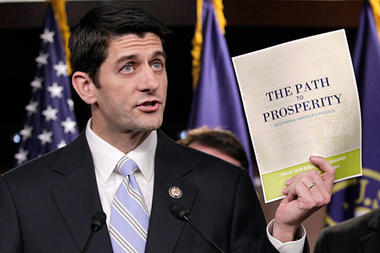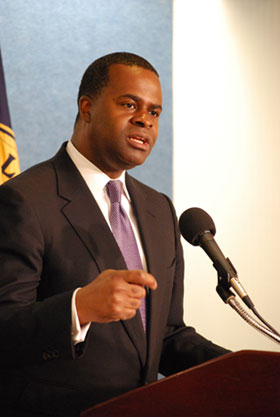Tomorrow is the last day of 2011, folks. I wish you a Happier New Year than this one was.
We've spent the last couple days looking back at some of the bests and worsts of 2011. A brief recap: The hit to transit budgets was the low point of the year, with the high point being the willingness of voters to tax themselves to restore some funding. Capitol Hill's paralysis in the face of urgent infrastructure needs was a double-edged sword, given some of the really bad proposals out there. We booed Wisconsin Gov. Scott Walker, Sen. James Inhofe, the lawmakers that killed President's Obama's high-speed rail plans, the city of Dallas, and the jury that convicted Raquel Nelson of "vehicular homicide" when she wasn't even behind the wheel of a car. And we heaped praise on Minneapolis and Charleston for making good decisions to move their cities forward sustainably.
And before we sing Auld Lang Syne and ring in 2012, we've got just a little more kvetching and kvelling to do, starting with:
Most Annoying Distraction From the Real Transportation Funding Problem (and Solution): It’s no secret that the Highway Trust Fund is sputtering, and it’s taken $35 billion in general fund infusions just to keep it going this far. It’s a pretty basic equation: If you’re taking in less than you’re spending out, you’re going to come up short. So you can spend less or earn more. Most experts say it’s time to raise the federal gas tax.

But this year saw some other brilliant ideas emerge – like eliminating the federal gas tax altogether and leaving all transportation taxing and spending to the states. Which is a punt if I’ve ever seen one, ignoring the fiscal crises and anti-tax atmospheres most states face, not to mention the fact that slicing transportation funding up exclusively by state doesn’t make sense for building national networks.
And it takes a few days off my life every time I give column inches to the argument, which found great support among congestion enthusiasts this year, that transit shouldn’t be funded through the Highway Trust Fund, that the Fund was just fine before all these “hangers-on” started detracting from the “core programs” – I just can’t even go on.
But I think we can all agree that the Streetsie for the Most Frustrating and Illogical Proposal for Raising Infrastructure Funds goes to the scheme to eliminate biking and walking from federal funding programs. Sen. Rand Paul (R-KY) framed it as a safety issue – that it’s more important to fix crumbling and unsafe bridges than to build bike trails. He was ignoring the obvious fact that it would take his home state of Kentucky 66 years to repair the bridges currently listed as deficient if they used the tiny sliver of funding devoted to bike/ped projects.
The numbers don’t crunch any better for Oklahoma, yet that state’s Sen. Tom Coburn has the same idea. It’s too bad too. It’s a state with a serious infrastructure maintenance backlog and some desperately unsafe bridges. Oklahomans could benefit from some honest proposals to make their state safer, not this political quackery.
House Republican Blooper Reel: How could we wrap up 2011 without a final lap around some of the ways the House of Representatives made a mess of transportation authorization and appropriations? We started the year with some hope that all the parties were on board to pass a transportation bill in 2011, but instead we got:

Republicans changing House rules to allow transportation funds to be withheld from transportation projects
How to choose the worst? Republicans, the Streetsie goes to you for your myriad bad ideas and bad policies. May 2012 bring a change of heart.

Good Stuff That Happened This Year: Enough bad news! Some good stuff happened this year too. The Department of Transportation doubled down on its Distracted Driving campaign (with some eleventh hour help from the NTSB) and distributed a third round of TIGER grants. An increased focus on performance measures by advocacy groups like Smart Growth America, Building America’s Future, and the Bipartisan Policy Center helped create a smart discussion around the next transportation reauthorization that wasn’t just a volley over numbers. Mass transit saved people time and money as more and more people filled trains and buses, leaving their money-guzzlers in the garage. And there are reasons to believe the transit trend will only keep growing. Indeed, more and more evidence built up that for once, people are beginning to drive a little less.
The demand for smart-growth style urbanism – albeit in suburban locations – has risen, and the real estate market is beginning to respond. Even better, smart growth could be our escape out of the slump the economy is in. And mayors are taking a stand against state DOTs that ignore the transportation needs of metro areas in favor of building more roads to nowhere that speed outward sprawl and don’t address congestion.
These are the things we'll be looking to build on in 2012.
So that's our list! Did we miss anything? Let us know in the comments if there's any more cheering and jeering left to do. New Year's Resolutions also accepted!
We'll be back to our regular publishing schedule Tuesday, January 3 -- just in time for the Iowa caucuses.






